Click on photos for slide show or scroll down for text.
It’s good to be back in Buenos Aires, with decent coffee more or less on tap (not a Starbucks or Costa in sight) and good food all around. I arrived in the morning, got through customs pretty quickly and was in my hotel by 10.30 am. No need to unpack – am only here two nights – so a couple of hours on the bed, a quick shower, a search for a not too garish t-shirt (it was surprisingly hot outside) and I went off to the Costanera Sur.
ABOVE: Monk Parakeet BELOW: Southern Caracara
The Costanera Sur (southern promenade) is where the people of Buenos Aires would go in the XIX Century to bathe (separately) in the River Plate. It thus became home to fashionable restaurants and tea gardens and was a place for the rich to drive in their carriages and the less well off to stroll along the wide walkways. More importantly [to me], nowadays it is here that after massive landfill dumping and polderisation (taking advantage of the urban expansion of the 1970s) the Costanera Sur Ecological Reserve emerged, about which more here.
ABOVE: Speckled Teal BELOW: Common Gallinule (see comment below)
I only had a couple of hours until nightfall, and it is a large site (the perimeter path is about seven kilometres) so I wasn’t too ambitious. I noticed on entering that the water levels were low – in fact the water situation was dire throughout the site, so I had little expectation of water fowl – and I wasn’t disappointed. I was surprised though to bump into Alec Earnshaw, on the hunt for a Laterallus leucopyrrhus (Red and white Crake) that had been reported recently. As I had already arranged to meet Alec the following evening we exchanged pleasantries and I walked out along the Western path.
ABOVE: Argentina’s Oven Bird BELOW: Roadside hawk
Being Sunday, it wasn’t really the time for serious birding, with half of Buenos Aires walking, running and cycling through the reserve, and it was also uncomfortably hot – surprising for the end of winter – but it was pleasant walking and I saw quite a few birds. No new species except one identified raptor – a Roadside Hawk (Rupornis magnirostris). Apart from that, I remet some of my favourites: I got some good shots of monk parakeets, ringed and speckled teal and red-fronted coot (the only water fowl I saw), guiara cuckoo, great kiskadee, ear doves, rufous hornero (oven bird), southern caracara, and others.
ABOVE: Ringed Teal (male) BELOW: Ringed Teal (female)
As I said, it was not a great day for birding but –and this, despite the fall in water levels in the lagoons– it was a great place to be, and I hope to get a quieter couple of hours before I leave BA for the south on Tuesday.
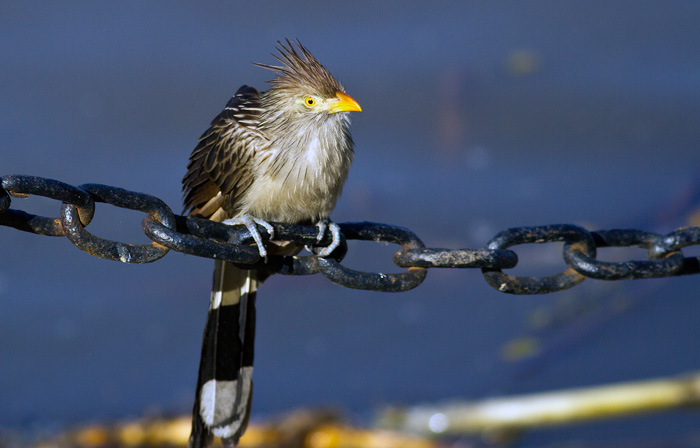
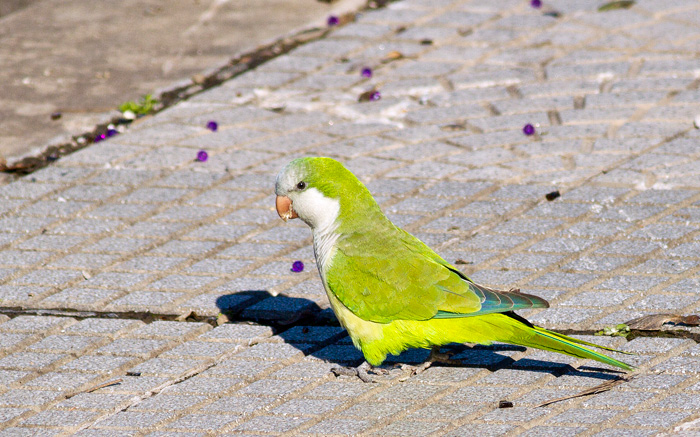
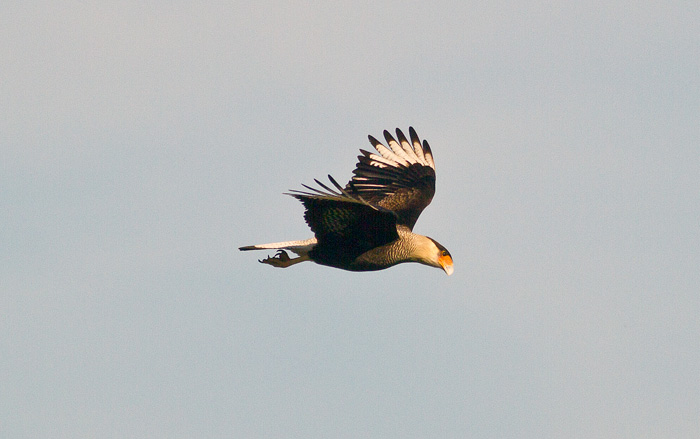
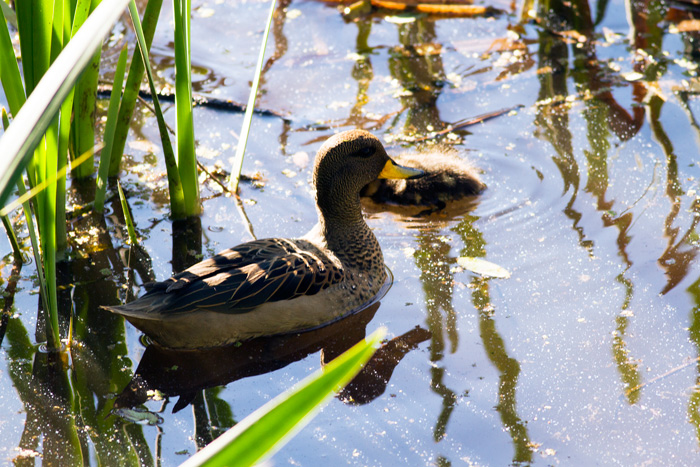
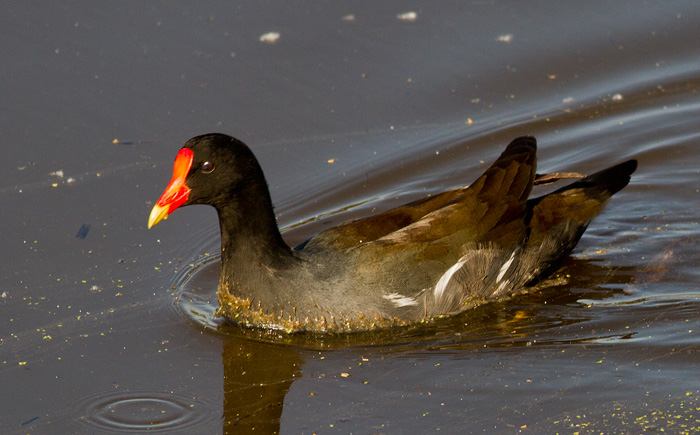
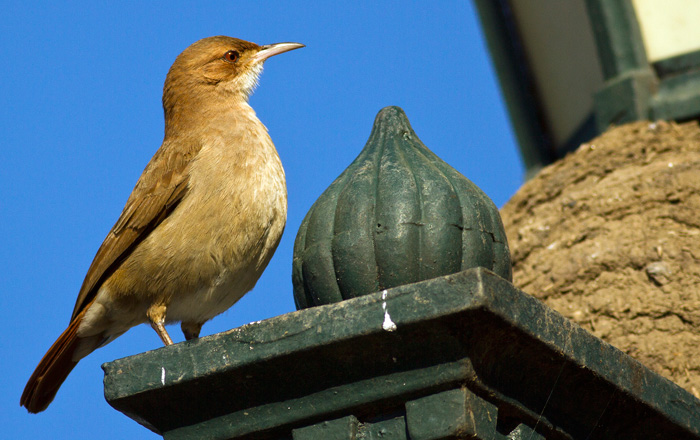
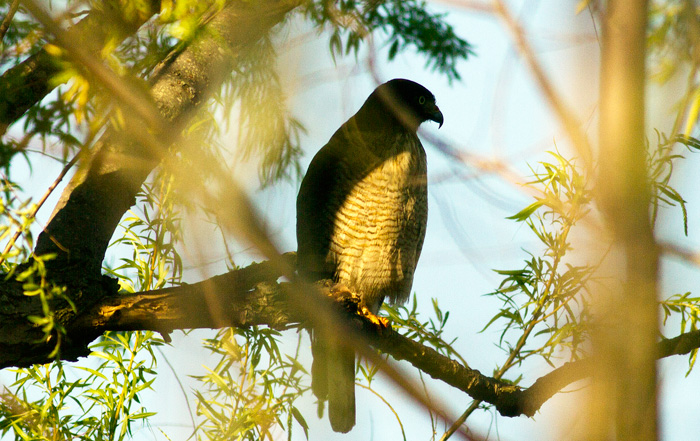
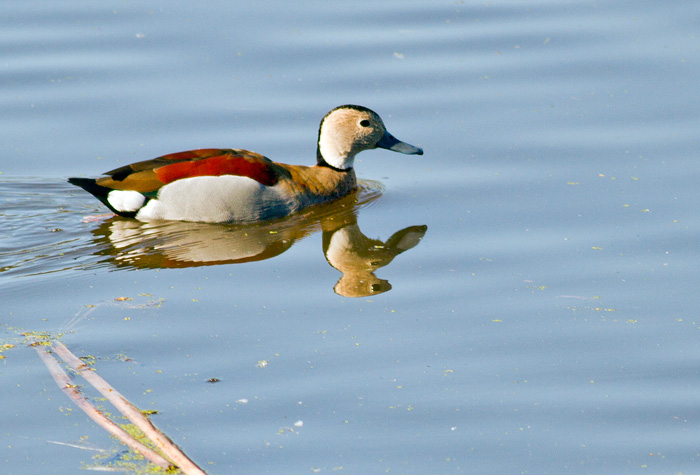
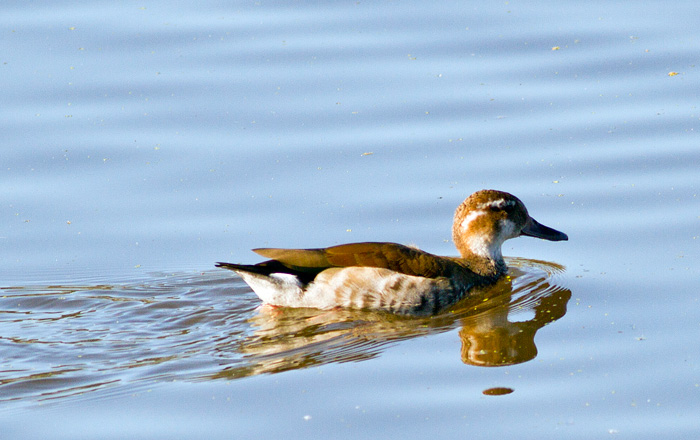
I have been reliably informed that what I had originally called a ‘red-fronted coot’ above is in fact not a red-fronted coot but a ‘Common Gallinule’. I have corrected the caption. Apparently the American Ornithological Association created a new division in 2011, separating the (European) Moorhen and (American) Gallinule. So now I must remember not to confuse four different birds: a) this one, actually the Pollona Negra or Common Gallinule (Gallinula galena); b) the Gallareta Ligas Rojas or Red-gartered Coot (Fulica armillata); c) the Gallareta Escudete Rojo or Red-fronted Coot (Fulica rufifrons); and d) the Eurasian Moorhen (Gallinula chloropus). Pics of first three available on Alec’s excellent site at http://www.fotosaves.com.ar/Gruifo…/FotosGruiformes_A.html; pic of Eurasian Moorhen at http://en.wikipedia.org/wiki/Common_moorhen.